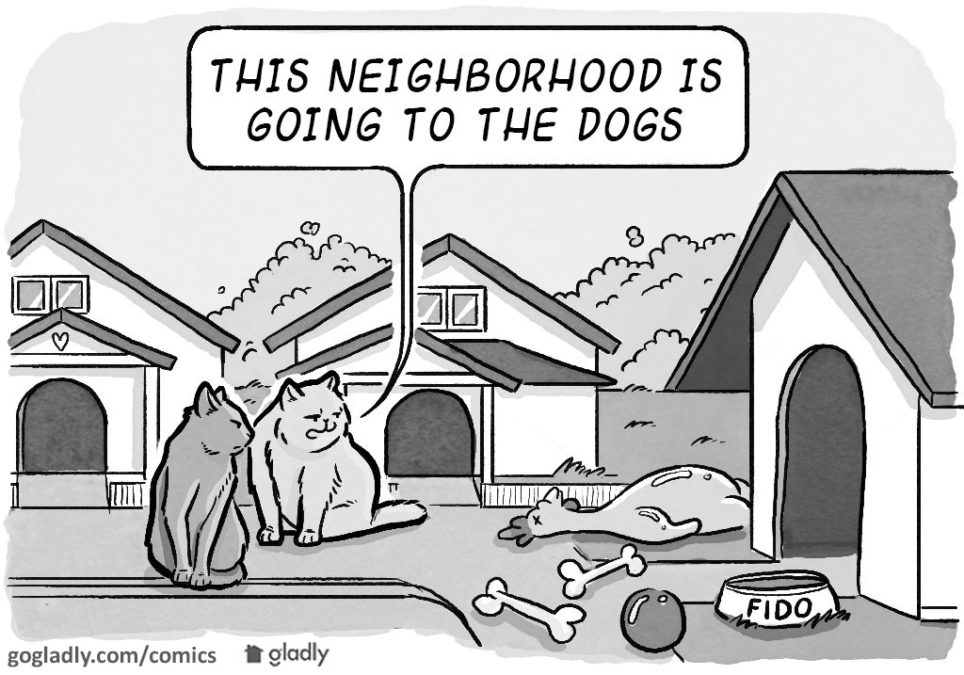Dealing with Waste Issues as a HOA
Waste problems affect everyone in a given area whether it’s dog droppings or a mound of stinking refuse. They not only blight an otherwise lovely looking neighborhood, but they provide a real health and environmental risk. Accumulated waste material attracts flies, vermin, disease, and can leak into the local water and soil, contaminating local wildlife. They also, seriously affect house, apartment and condo prices. That’s where a good HOA waste policy can help.
Dealing with Pet Mess
One of the most common waste issues facing any community including HOAs is pet waste; specifically dog waste on sidewalks, in the grass, and other areas. Cats are known to contribute their droppings to flower beds and other people’s gardens, but irresponsible dog walkers are the most visible issue. This provides a real danger to children as well as being smelly, harmful, and an eyesore.
Resolving the issue can take many forms. The first is to exert pressure on dog walkers as a HOA and ensure there are plenty of dog waste cans for people to put bags of poop into — and that this is collected by a company or authorities. Other condo communities have taken to hiring professional dog waste cleanup services, but before even considering this, the most important thing to do is talk to the people doing it. Some are ignorant and some lazy, and will change if challenged.
Non-HOA Waste Build Up Among Neighbors
No Housing Association land exists in a vacuum, so whether it is a rogue member or a neighboring property, a build up of large amounts of waste can become a reality and a major problem for residents.
Whether the neighbor is a HOA member or not, there are many things you can do together to resolve the issue. The first step should always be to approach the landowner/homeowner or tenant directly to discuss the issue and see what’s behind it. Sometimes they have not realized there is a problem until it’s too late, sometimes due to age and/or illness they’ve been unable to deal with it, or in other times they just do not care.
With the first you might be able to convince them to sort it out — give them the tools with contact numbers, advice etc… With the second one, it might take some community action to be good neighbors and help them sort the problem out. However, with the final one, you may have to explore legal avenues and consult local authorities about various laws and actions which can be taken to force a clean up.
The Power of Community
As these two examples show you, by working together as a HOA or condominium community, you have way more power and resources than an individual homeowner or a group of unconnected neighbors. Together you can find solutions, help neighbors in need, and set up a good HOA waste policy for a better, healthier, and cleaner community.
- Does You Have a HOA Waste Policy? - January 3, 2017



 Help
Help
So true, thank you for sharing. Can’t we all just be responsible and get along?
I wish it were the case! My neighbors upstairs have a dog who is allowed to defecate everywhere in the small common ground yard and sidewalkwhich goes to my unit only.. they have been warned & fined month after month.. Yuckypoo!
[…] Waste problems affect everyone in a given area whether it is dog droppings or a mound of stinking refuse. They not only blight an otherwise lovely looking neighborhood, but they provide a real health and environmental risk. Accumulated waste material attracts flies, vermin, disease, and can leak into the local water and soil, contaminating local wildlife. They also, seriously affect house, apartment and condo prices. Read the article………. […]
I took a video of a woman who allowed her dog to urinate on our patio and shrubs. She refused to stop. I put the video on YT, then put a no trespass on HER DOG. That stopped her dead in her tracks. I love Virginia.